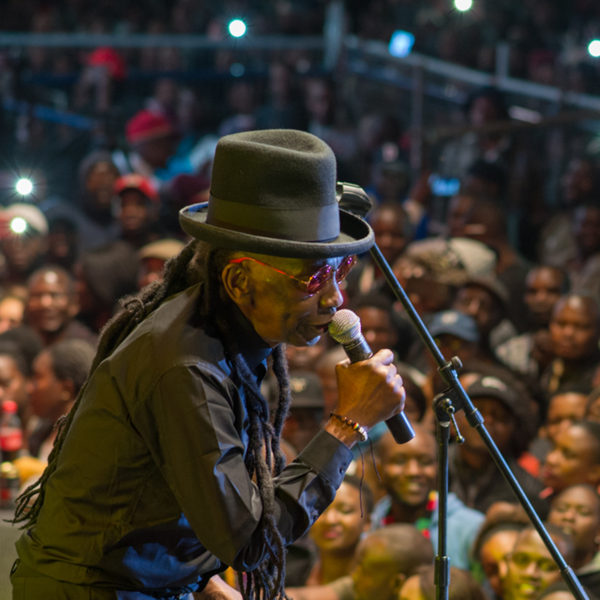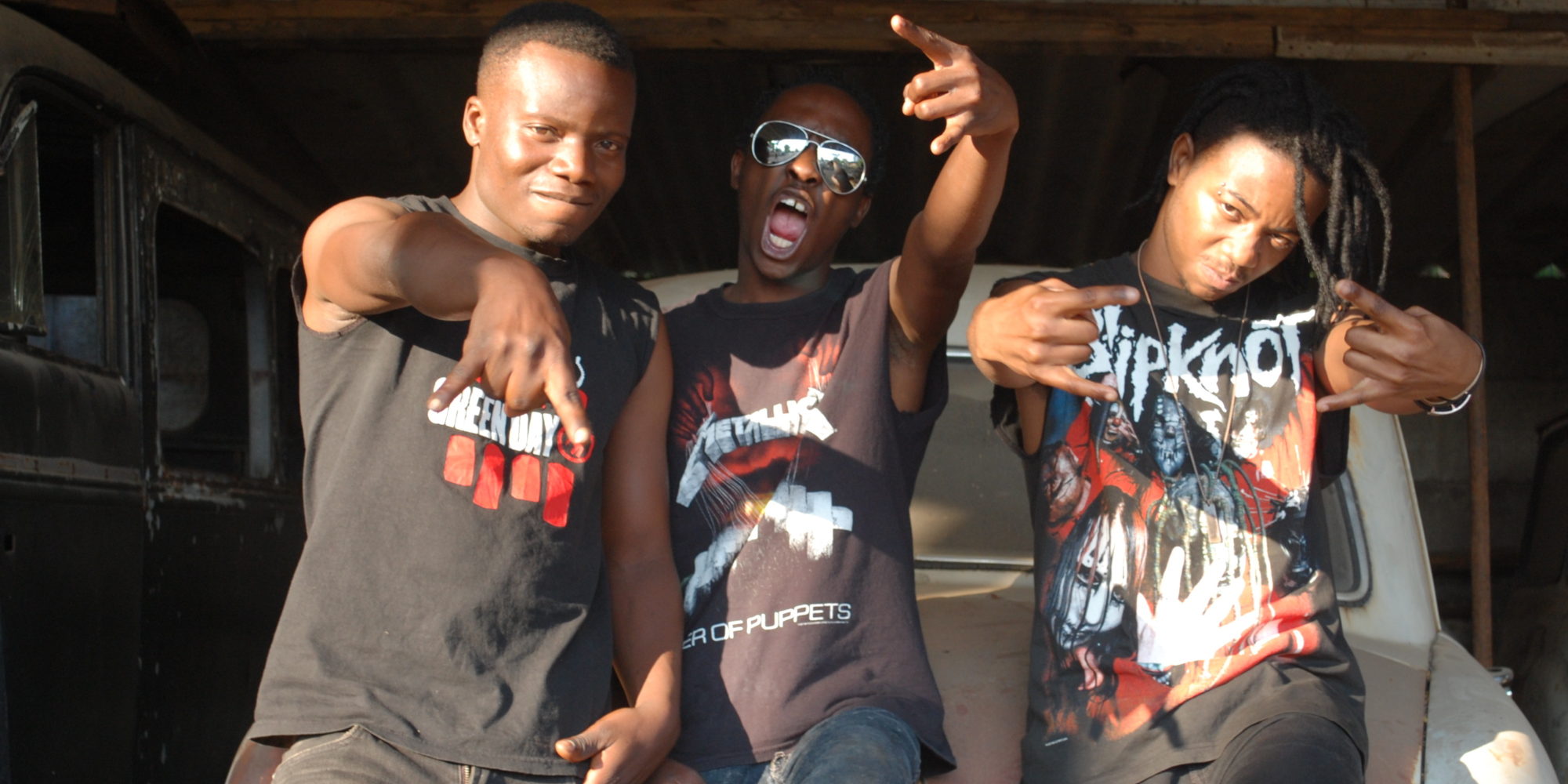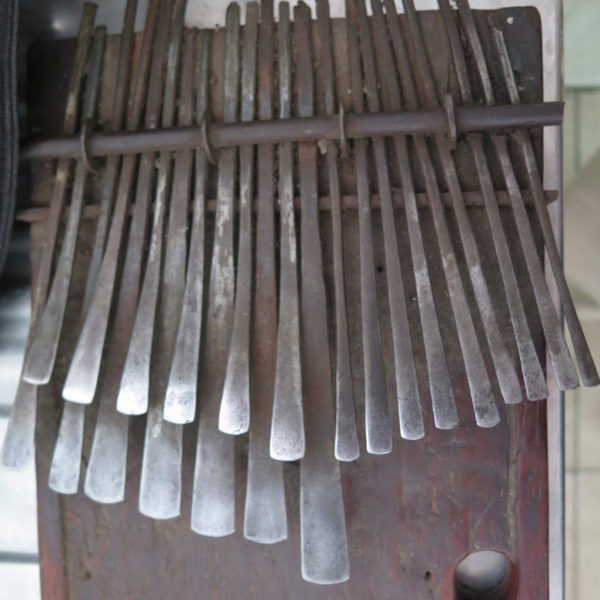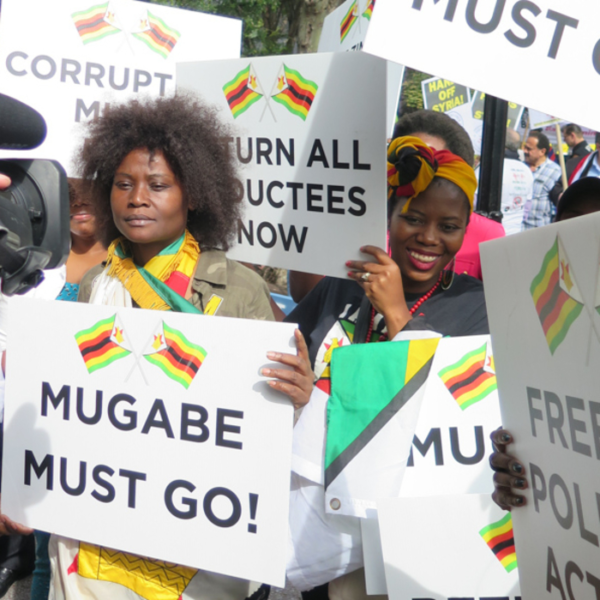Music has always been a vehicle to reach out to those who feel marginalized, silenced, and left out. Rock 'n' roll has always held a spot in the hearts of those rabble-rousers who needed a form of expression to validate their cause. In the case of rockers performing in what was once known as Southern Rhodesia, rock music suited their needs well. Echoing voices from the West of people embroiled in protests against the Vietnam War and for the civil rights movement, musicians in then-Southern Rhodesia found a vehicle through which their own frustrations were perfectly amplified: Rock 'n' roll.
Drawing influences from the fuzzy rock sounds of neighboring Zambian bands and doses of British hits on colonial radio stations from artists such as Deep Purple and Jimi Hendrix, acts such as Musi-O-Tunya, Eye of Liberty, Dr. Footswitch, and notably Wells Fargo—whose name was taken from a wagon they saw in an American western film—were laying a foundation for others that might have aspired to follow the path with electric guitars strapped to their souls.
These bands were writing and recording original music in the era of white rule, performing for mixed audiences, much to the chagrin of the ruling government. “We were a culture that was taken from another culture that was happening somewhere else, that was worldwide. There wasn’t that much of a difference between blacks and whites; we enjoyed the music,” rock musician Ike Mhlanga explained to me in 2015. Himself an active rocker during the 1970s, Mhlanga remembers the energy in the air that was sparked by this music, which defied the segregation policies of the ruling government.
“We were rebelling against a particular system in concert with other youth that was abroad. We were rebelling against the Smith government using the power of music,” Mhlanga recalled. The shows that bands played were bringing people together, even when the laws that defined their lives prohibited them doing so.
But interest in rock music was short lived. Once independence broke in 1980, and the nation was reborn as Zimbabwe, more traditional influences seeped into the local sounds. “Now it was back to your roots, and people started going traditional. More African music than European music,” said Ebba Chitambo of Wells Fargo in a 2015 interview with WNYC.
After Zimbabwe witnessed Bob Marley and local icon Thomas Mapfumo taking the stage for a concert celebrating Zimbabwe’s independence in 1980, rock music—a form of music from Europe—was pushed aside.
Zimbabwe’s independence script, however, was marred by difficulties. By the late 1990s, during the era of controversial government land seizures, the economy began a spiral that rivaled the worst the world has seen. Poverty, unemployment and authoritarianism became the norm for Zimbabwe.
Today, though, a new group of rockers is hoping to once again shape the sounds of Zimbabwe’s musical mold, ready to reflect on the years of political knavery that shaped their adolescence. While their predecessors’ lives were marked by the struggle for independence, the current crop of rockers’ lives were shaped by a series of mishaps that affected everyone. For the youth, music filled a valuable void.
Scattered in various areas throughout the capital city, Harare, four bands are redefining the ambitions and sounds of their generation in Zimbabwe—Chikwata 263, Evicted, Acid Tears and Dividing the Element. These rock groups are showcasing unique voices, and reinventing the sounds of their upbringing with their love of distorted guitars.
“The Evicted sound developed organically, because we all come from different musical backgrounds and we all love so many types of music. But we did have in mind the intention of mixing genres,” said Derek Bailey, vocalist of the rock-fusion band Evicted. Along with Dominic Benson, Theo Rohde and Justin Soutter, Bailey says Evicted’s sound was a response to oddities he noticed growing up: although the school was integrated, much of the music was still segregated. White kids enjoyed Western music, while non-whites gravitated toward traditional music, he explains—an aspect that he did not enjoy. “I felt completely isolated as a musician who grew up among these divisions, and I have hated the concept of music genre ever since. It just seems like another form of elitism and segregation to me. When we started as a band our goal was to shatter these divisions and get kids to listen to music they normally wouldn’t listen to.”
Another band rock band in the capital city, Chikwata 263, performs a fusion of early rock and punk influences, welding them with the sounds of Zimbabwe’s most cherished local instrument, the mbira. Tomas Brickhill,vocalist and guitarist for the band, explained, “We’ve become the bridge for somebody to get hooked because they might be interested in rock or punk music and they say, ‘Wow, there is a punk band in Zimbabwe, and these guys are playing mbira.’”
Although his bandmate and mbira player Hector describes the band as more of a “cultural hybrid” and less of a rock band, Brickhill disagrees. “Both by the style of music and our attitude, we are definitely a rock band…We are opening the door for mbira music to an audience that has no interest at all. Because we are the halfway point!”
Along with members Ray and Jac, the band released a song in late 2017, “Hope and Optimism,” (written while president Mugabe was still in power) that reflects on the aspirations of all Zimbabweans: “I’ve got hope and optimism in spite of present difficulties,” intones the powerful refrain. “The song is an open book,” said Brickhill, “because somehow we still believe.”
Heavy metal, a genre that has seen a substantial growth in the continent over the recent decades, has a small scene in Zimbabwe, represented by two bands.
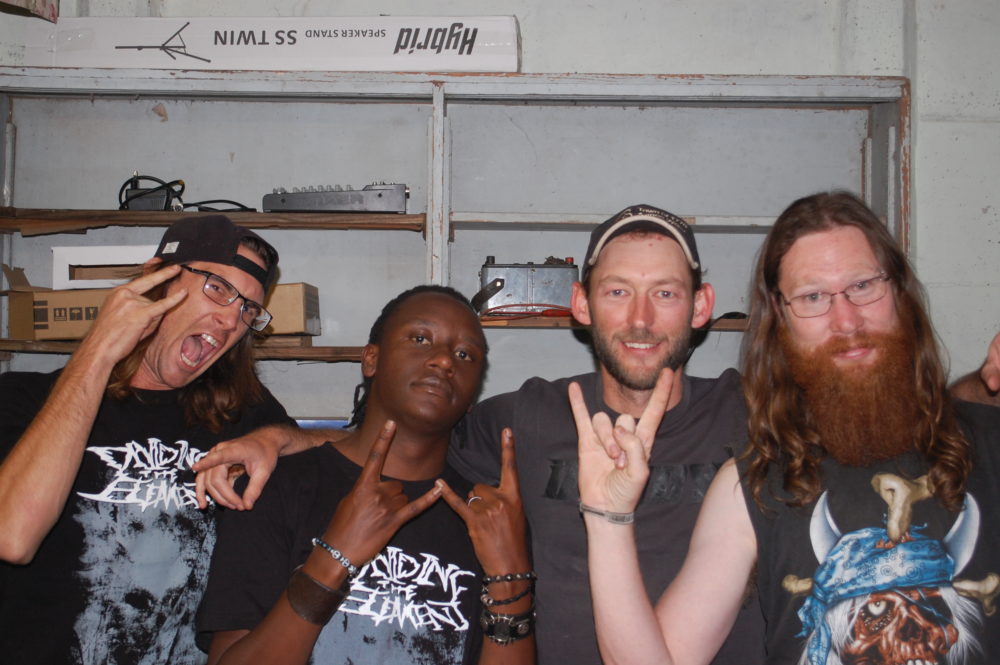
Highlighted by the distinction of being the first heavy metal in the country to release an album, Dividing the Element is ready to reach out globally. The self-titled debut released in May 2018 features detuned riffs and a convergence of varied vocal styles, as drummer Newbz describes: “A blend of aggressive metal mixed with some local rhythms and language.” Yet, one aspect of their performance that sets their sound apart is the use of the Shona language.
“The issue Zimbabwean metalheads faced for the longest time was isolation—not just from the outside world, but also from each other. Singing in Shona helped bridge that divide,” said vocalist Chris Van.
“Metalheads finally have a sound they can identify with, and Shona speakers who are unfamiliar with the genre are now offered a new and different format in which the language is expressed and heard in music,” said Van. “These elements have contributed greatly to uniting and growing the Zimbabwean metal community, which is what inspired my vision and why I set out to form the band to begin with.”
Rounded out by bassist Matt and guitarist Archie, the band has understood just how difficult it is to be in a heavy metal band in a nation without a solid metal history. With just one other metal band in town, the task of building a scene is formidable.
For vocalist Boyroc and his Acid Tears bandmates—guitarist George and drummer Billy—heavy metal is everything. Formed in 2013 in the Harare-area township of Mabvuku, the band recently released a single, “Drowning,” and is currently writing and recording an album.
“Most people look at us like there is something wrong with us, like we need help. Especially when you come from Mabvuku,” Boyroc said. “People just don’t understand it at all. I remember when I was practicing screaming at home. They asked, ‘What is wrong with you?’” he recalled, laughing. “Acid Tears is breaking the cultural norm expressing itself with metal.”
“It’s just my outlet to deal with stuff. It just gets that all out there.” The band’s guitarist, George, added, “It lets everything out.” The trio (they do not have a bass player), made their live debut in May of 2018, and are taking things at much slower pace.
The two bands often work together, sharing the same generator-powered garage for rehearsals (electricity is still rationed in Zimbabwe), recording equipment and performance spaces.
“Having two metal bands is actually a big step for Zimbabwe,” said Boyroc. “It is difficult, but the fact that there is metal in Zimbabwe is actually special to us, and we see it as just the beginning…as we inspire others. We support each other by our very existence by knowing we are not alone,” he adds.
Both bands look to neighboring Botswana—a nation with a high profile in the metal world—and South Africa, where international bands have been adding the nation to their touring itineraries with more frequency. These countries model the possibilities, and attest to the viability of African heavy metal.
Being a musician in Zimbabwe comes with a set of difficulties that others in Africa seldom encountered—the fear that someone was always listening. Speaking out, or addressing social issues through music, was “foolish,” said Brickhill, as it could lead to potentially deleterious results, including arrest. And there was precedent: Iconic voices in the nation’s treasured history such as Andy Brown and Oliver Mtudkudzi both dealt with censorship and intimidation.
Others went into self-exile in the early 2000s, notably Thomas Mapfumo, who moved to Oregon after constant harassment and censorship by the government for his fustigation of Mugabe.
Robert Mugabe’s time expired, though. He was ousted in November 2017 by Emmerson Mnangagwa, his former vice-president, in a bloodless coup, sending an unexpected shock of joy and relief around the world. “After Mugabe left there was a big celebration,” said Boyroc, adding, “We experienced a change we thought we would never see.”
But what is the future for Zimbabwe now that the country will no longer be Zim-Bob’s Way? For the musicians involved there is hope that they can perform freely, without worrying about who is listening. With elections slated for later this year, the cards have flipped, landing on the side of possibility.
“There's a lot of excitement and hope in the atmosphere for change and development within the country, so the energy right now is very optimistic, which is a phenomenal experience to be a part of,” Van affirmed.
“(The) Western media has been more freely allowed to enter the country, and it does feel like we are reconnecting with the world again! There are some positives, however real change is going to take time, especially in terms of the economy. We all feel more free to talk and discuss politics and social issues in our music,” expounded Bailey, stating that since Mugabe’s absence, Evicted has released a song called “Fight or Fall.” The song is critical of the nation’s police departments, and would have likely have never been released with Mugabe in office.
With a difficult past behind them, the musicians I met are now hopeful that the rock scene can move forward in establishing a viable community for rockers. Bailey, and the others are aware that their bands still have plenty of work to do.
“There is a new optimism in the rock scene,” he affirmed. And others are excited about their future. The four bands are now able to perform with more frequency, allowing local fans to experience live African rock and metal music, often for the very first time. And, if Zimbabwe’s current generation has their way, so will the world.
Related Audio Programs

